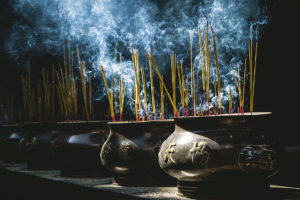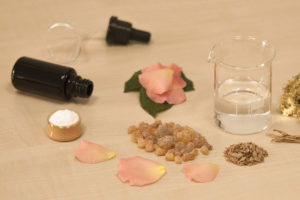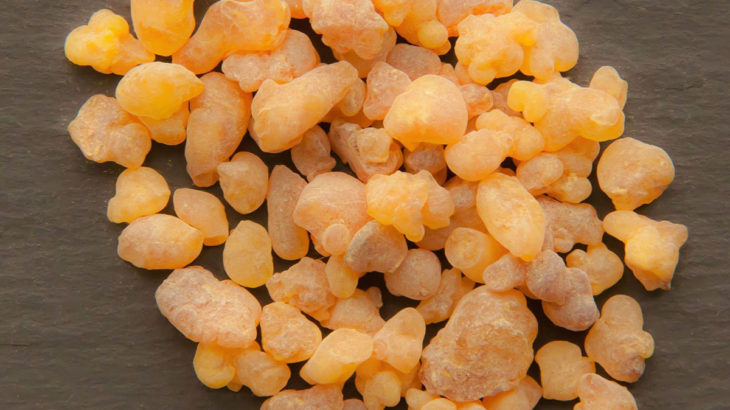If frankincense were a human, it would be mature in its attitude towards the world and confident in communicating its truth. It would be meditative and would possess a deep understanding of the universe. Frankincense is an ancient oil extracted from the frankincense trees found in Somalia, Ethiopia, southern Arabia and China. It is a deep, warm, soothing oil that has had historic use and significance since Biblical times.
#5 of 10: Frankincense Essential Oil
Frankincense is an ancient oil extracted from a small tree that grows to the height of three to seven metres (9-12 ft.) It has a large amount of narrow leaves, and its flowers are usually white or light pink.
The frankincense trees used in commercial essential oil production are native to North Africa, southern Arabia and the mountains of western India.
There are five frankincense tree varieties harvested in different areas. Boswellia carterii and boswellia frereana come from Somalia. Boswellia sacra grows in Oman and Yemen, in the southern end of the Arabian Peninsula. Boswellia papyrifera can be found in Ethiopia, and boswellia serrata in western India.
Frankincense Essential Oil is made from a milky white resin, which oozes out of the frankincense tree when an incision is made in the tree trunk. The resin then hardens into small tear-shaped lumps of amber-coloured gum which, when subjected to a steam distillation process, turn into the colourless, yellow, amber, orange, red or brown liquid that we know as Frankincense Essential Oil. Commercial frankincense oil used by the perfume industry, on the other hand, goes through a harsher solvent extraction.
Wild Harvesting
It is interesting to note that frankincense trees tend not to be cultivated. The gum is harvested from areas with naturally occurring trees mainly in Somalia, Ethiopia, southern Arabia and China. The gum is then shipped to Europe or India to be distilled to essential oil.
Pure Smoke

The name frankincense comes from an old-French word frank, meaning free or pure, and the Latin word incensum, to smoke.
Frankincense is also known as olibanum, which is thought to be derived from the words olium libanum or oil from Lebanon.
The chemical construction of frankincense is rather complicated. The main ingredients, out of nearly 30 chemicals, include l-pinene, dipentene, phellandrene, camphene and olibanol. The smell of Frankincense Essential Oil can be described as woody and fresh with hints of lemon.
Ancient Egyptian and Jewish History
The history of frankincense usage goes back to antiquity. It has been used for domestic and medicinal, as well as religious, purposes in ancient Egypt, Persia, Israel, Greece and Rome. According to Herodotus, frankincense was also used in religious rituals in Babylonia.
The Egyptians used frankincense to create kyphi, the famous substance burned as incense at sunset rituals dedicated to their sun god, Ra. The ancient Egyptian prototype of mascara, kohl, was made from charred frankincense. Frankincense was also one of the ingredients used in the embalming process. The Egyptians sourced their frankincense from the mythical Punt, possibly a region in Somalia.
Frankincense was an ingredient in the Jewish ceremonial incense and used in the Sabbath offerings.
In the Roman empire, frankincense was so popular that emperor Nero is said have burned more frankincense at his wife’s funeral than the whole of Arabia could produce in a year.
The Bible mentions frankincense 17 times, most famously as one of the gifts brought to infant Jesus by the Magi: “And when they were come into the house, they saw the young child with Mary his mother, and fell down, and worshipped him: and when they had opened their treasures, they presented unto him gifts; gold, and frankincense and myrrh.” (Matthew 2:11)
In some Christian denominations, namely the Greek and Roman Orthodox churches, frankincense is still an important part of the worship service.
Health Care Applications

The main health care applications of Frankincense Essential Oil are for ailments occurring in the nervous and respiratory systems, as well as for skin care.
The effect of Frankincense Essential Oil on a stressed and anxious mind is wonderful. Frankincense has the ability to calm the mind by naturally deepening and lengthening the breath. Slower, rhythmic breathing has been scientifically proved to induce a meditative state of mind and to compose chaotic thoughts.
Frankincense is recommended for people with depression and nervous tension. It is beneficial for people that are overwhelmed with the changes happening in their lives. People that are worried about the future but cannot let go of the past will find that using frankincense gives them clarity of thought and boosts their energy levels.
Used in massage, Frankincense Essential Oil alleviates tightness in the chest and makes breathing easier for asthmatics and people suffering from bronchitis. Please note: if you have asthma, do not use steam inhalation, as asthma does not react positively to heat.
For those suffering from sinusitis or laryngitis, Frankincense Essential Oil has a soothing, anti-infectious effect.
Frankincense is an expectorant and an anti-catarrhal. This means it helps to release mucous for people with a cough or catarrh.
Dry or old skin will thank you for using Frankincense Essential Oil as it is a great aide against wrinkles and other signs of ageing. It has a tonic, invigorating effect on slackened skin and can be used to heal scars and wounds.
Frankincense in Traditional Chinese Medicine
In traditional Chinese medicine, frankincense is used to smooth the flow of Qi and to treat pain brought on by rheumatism, menstruation and heartburn. For those with heavy periods, we recommend adding Frankincense Essential Oil into bath water or using it to massage the lower abdomen.
Frankincense boosts a person’s defensive Qi and helps with depression. It is also used for stress, irritation, insomnia and general restlessness.
Frankincense Personality

As mentioned above, frankincense has a beautiful calming effect on the mind. It is related to the earth element and is able to centre and clarify thinking processes. It creates tranquillity and may lead to new insights and improved self-discipline.
The frankincense personality is friendly and loving, but may like to hide behind mystery and secrecy. If frankincense were a human, it would be mature in its attitude towards the world and confident in communicating its truth. It would be meditative and would possess a deep understanding of the universe. A frankincense person would love God without necessarily being religious.
Safety of Frankincense
Frankincense Essential Oil is non-toxic. It doesn’t irritate the skin or create an allergic reaction. Frankincense Essential Oil is safe to use when pregnant.
Shop for Frankincense Essential Oil in store today >>








